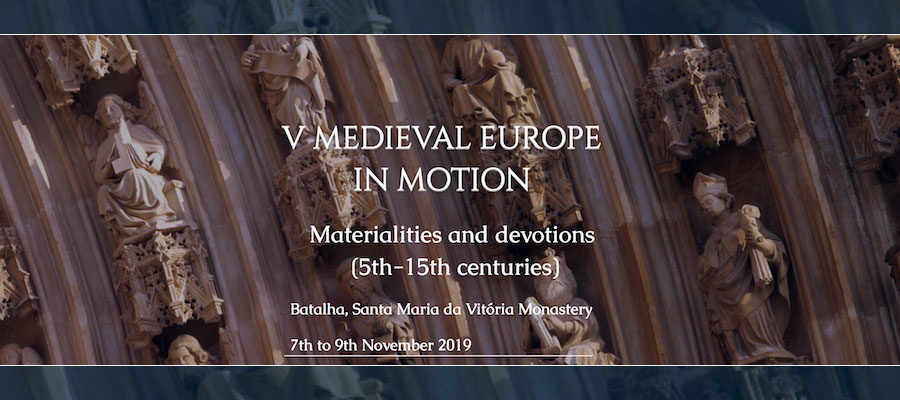V Medieval Europe in Motion: Materialities and Devotion (5th–15th centuries), Mosteiro de Santa Maria da Vitória, Batalha, Portugal, November 7–9, 2019
The last decades have witnessed the development of studies on material culture, favouring an inter- and multidisciplinary approach. This has enabled a more cohesive reading of the way in which the medieval Man related to his material environment, manipulating, adapting and transforming it, of the uses given to the objects he produced, the meanings attributed, how he interacted with them in cognitive and affective terms.
Summoning this dimension in the relationship with religion, devotional practices, sensibilities and representations, carries a new set of questions and necessarily calls for different knowledge in order to deepen understanding and the interpretation of the relationship between medieval religiosity and their material translations. From the images carved and painted to the buildings edified, from liturgical objects to reliquaries and tombs, from books to personal objects of piety, from temples to the inscription of the various forms of religious life, there are many domains where the relation between materiality and devotion can be a prospect and a problem. It intersects the material, functional, performative and aesthetic dimensions with the different readings it calls for, the cognitive and emotional apprehensions, the representations (erudite and popular) it associates with, the practices that it sustains, the memories that polarize and legitimize, the powers that were affirmed through it. It discloses the diversity of variants such as wealth and social position, more or less literate training, and gender differences.
The colloquium thus aims to be a broad space for debate, both in the plurality of knowledge and in the diversity of sources, historical, geographical and religious contexts (Christian, Jewish, Islamic and other), and in analytical perspectives.
Scholars of all disciplines are welcome to apply with proposals for sessions or individual papers. Official languages: English, Portuguese, Spanish, French, Italian.
